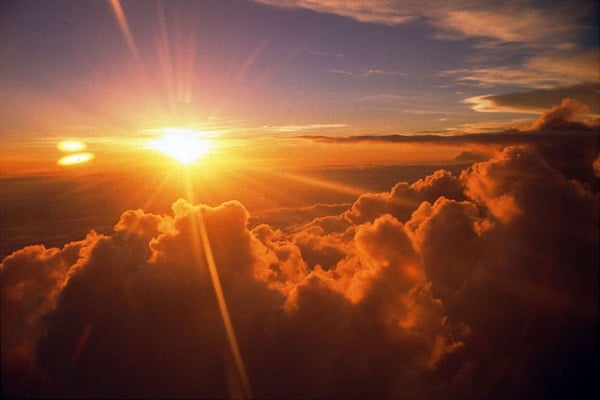The Creation of the World: The Crossroads between Theology and Science (Petros Panayiotopoulos)
19 Μαΐου 2017
The matter of the beginning of the world is one which traditionally has belonged to those great issues which have engaged our minds. How was the world created? What existed before that which we see? What was it that brought it all into existence? This is what inquiring minds wonder in any culture and at any time. These are questions which are baffling, so much so that we may prefer to avoid them altogether, not to trouble our minds with them, since they seem to have little relevance to reality, in which case neglecting them is not particularly difficult.

But how far is this really true? For a start, everybody with any intelligence at all is concerned with the deeper issues of life, regardless of the answers they give themselves or the profundity of their reflections. Indeed, it would be no exaggeration, to say that any answers they give to these questions are closely linked to their general attitude to life and things in general[1].
This point is linked to a fundamental misunderstanding which often occurs when we mention the genesis of philosophical thought. No doubt because of an inclination to elevate the contribution of Socratic thought in the search for truth, we claim it to be radically opposed to the corresponding pre-Socratic investigations, declaring that, through the Athenian philosopher the centre of gravity shifted from the observation of nature, on which the Ionian thinkers insisted, to reflections about the human person per se- that is, sights were turned away from the outside world and towards our inner self. Yet the pre-Socratic contribution was not exclusively dominated by nature: its proposals also include conclusions of a moral character and, although their content does not indicate any systematically-processed anthropological model, they do still refer to the overall position of people towards their life[2].
Besides, people’s moral standpoint is indirectly determined by the meaning which is attributed to the content and prospects of life. So our place in the world brings its own significance, since, the way we define it provides a distinct meaning regarding our identity and determination.
* * *
Concerning the intrinsic scientific approach to the beginning of the world in which we live, and to cosmology in particular, it would be no exaggeration to say that for some decades now we have been living in a ‘golden age’ as regards cosmological revelations[3]. This naturally does not mean that we have a complete understanding of the structure of the universe or that all of the questions which absorbed us in the past have been answered– far from it. Many of them remain and others arise and there is no shortage of blind alleys.
But what maintains optimism in scientific circles are the improvements in observations, which feed our theoretical models with fresh data, as well as the research efforts which are reaching out in a variety of directions and promise further understanding of the workings of nature on a grand scale. No doubt some of these efforts will prove abortive in the future, but this is the way science advances and the contribution of every effort matters to the final result of the acquisition of knowledge (even, sometimes, precisely because they are negative).
As regards anything that has to do with the beginning of our universe, the knowledge we’ve gained has come to us through many instances of this kind of success and failure. In the main, however, this process has much to say about the relations between the scientific and religious view of the world, particularly at a time of advancing secularization and the egregious escalation of the prestige of science on the social level.





